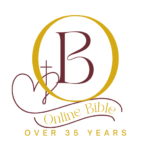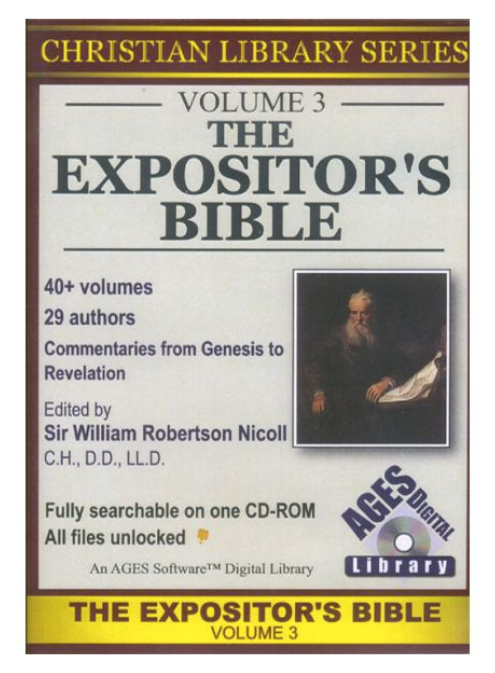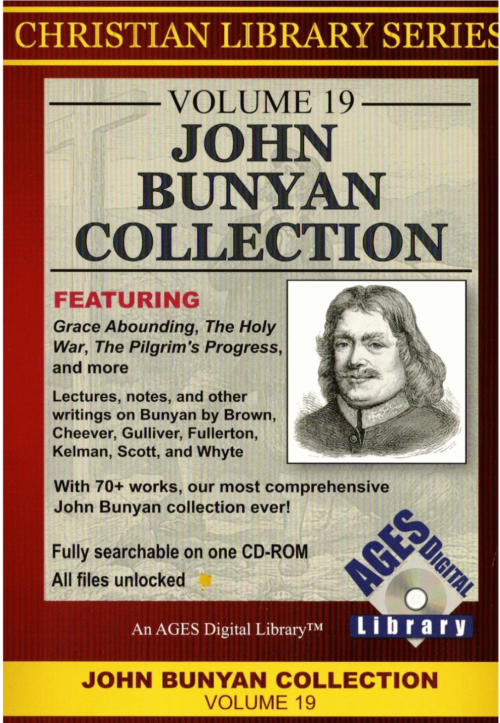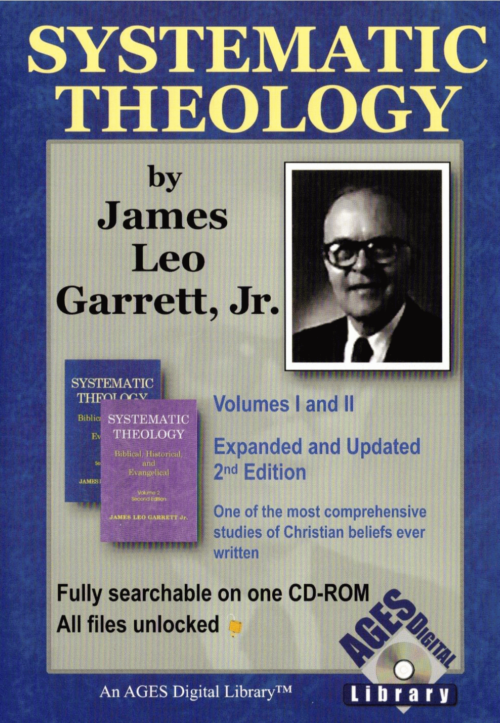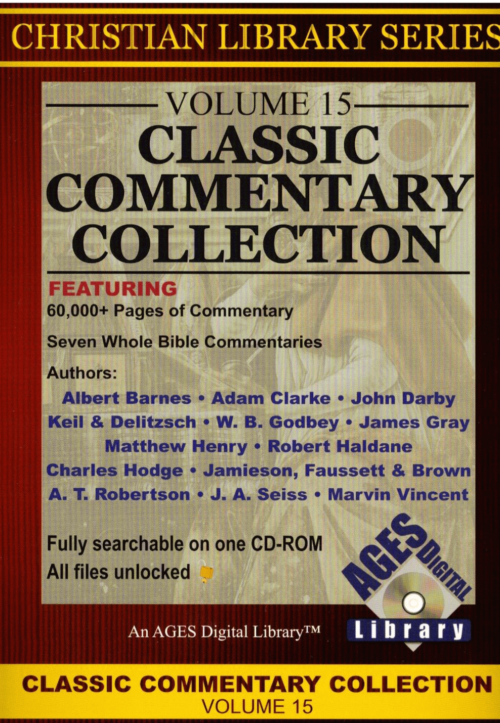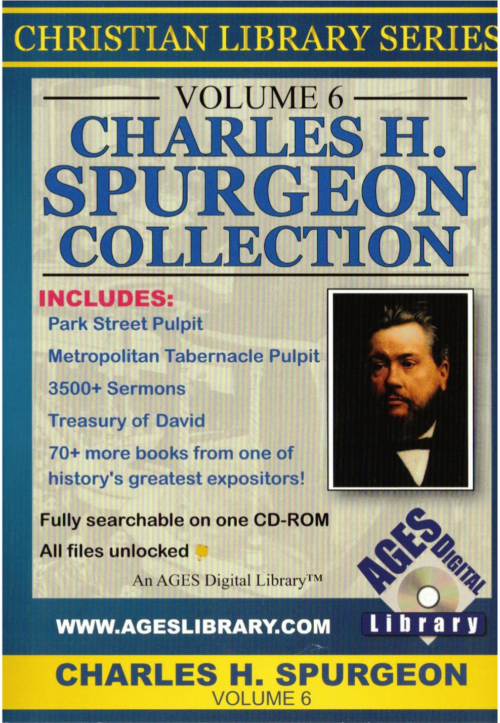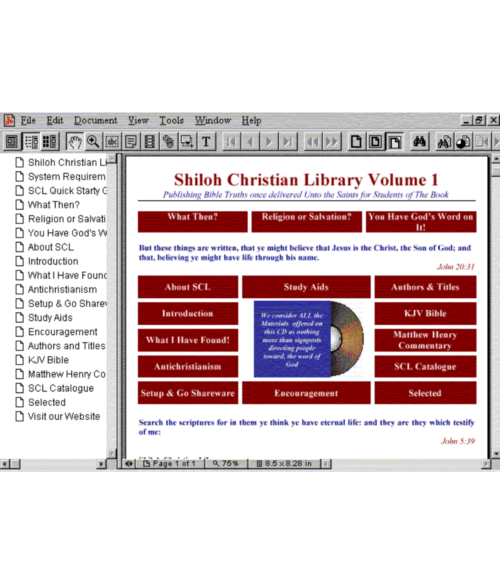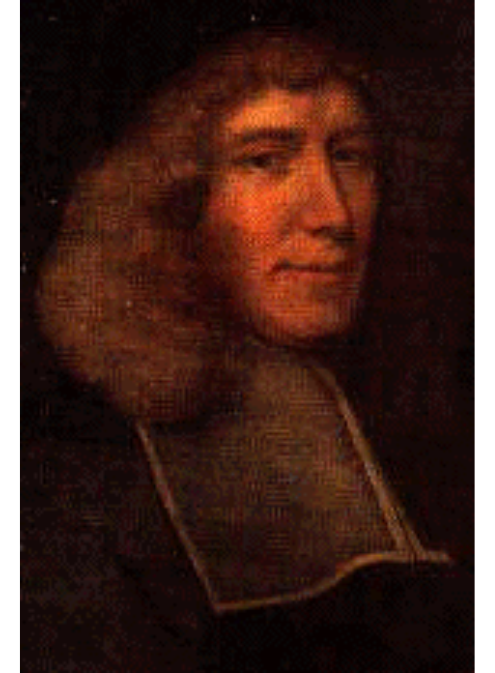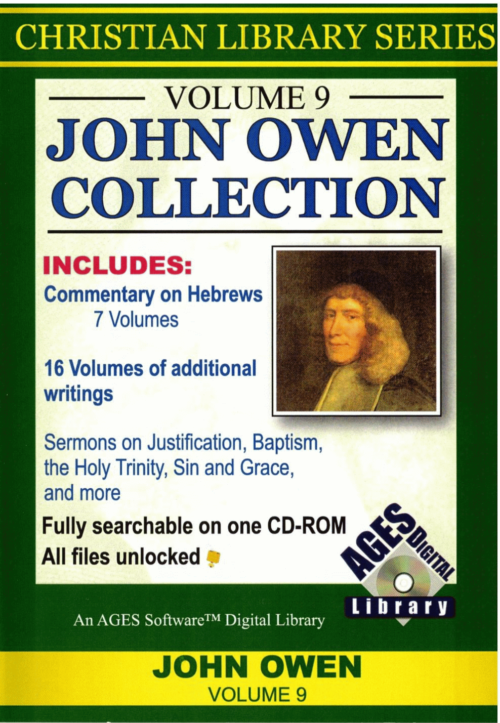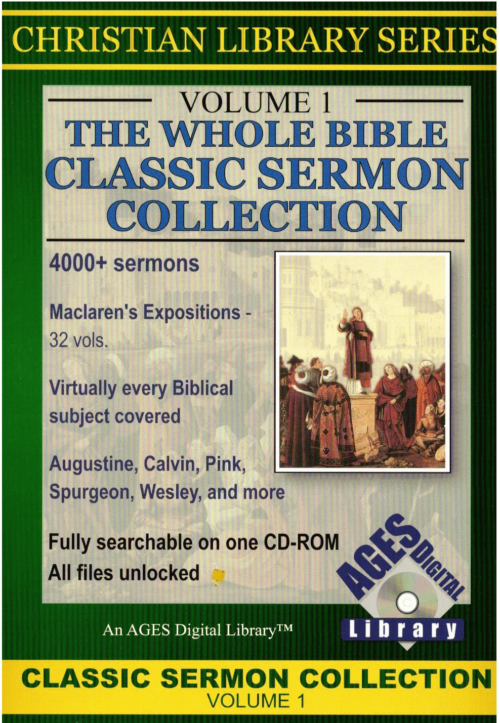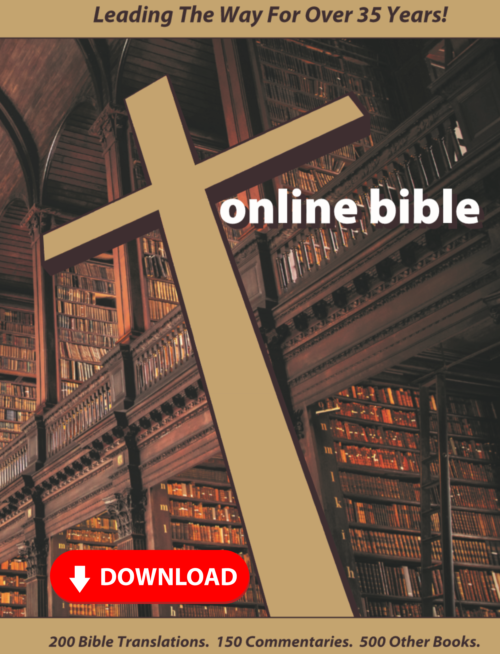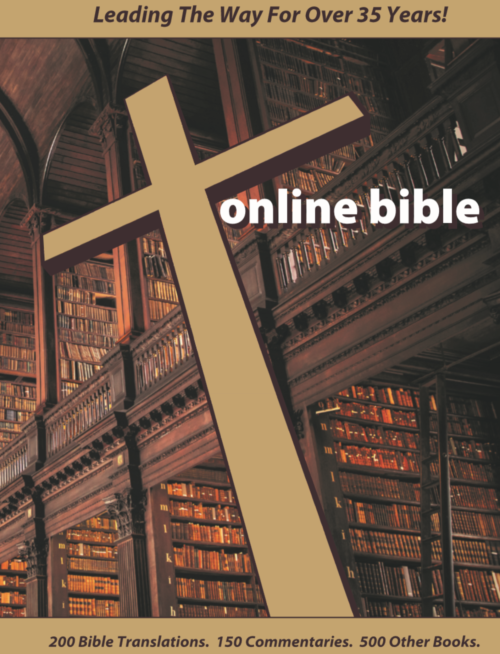#89 Expositor’s Bible
$19.95
The Expositor’s Bible
Edited by Sir William Robertson Nicoll, C.H., D.D., LL.D
General Introduction By The Reverend Oscar L. Joseph, Litt. D.
THE EXPOSITOR’S BIBLE is the recognized standard of expository commentaries. It was written by twenty-nine eminent scholars who were also preachers. Although some of them later occupied professorial positions they had all been preachers whose ministrations were of a high Order of excellence.
Description
They retained their preaching instinct and insight even after they had vacated the pulpit for the chair.
These writers also represent every important branch of Protestantism. THE EXPOSITOR’S BIBLE may thus be regarded as an interdenominational exposition. It declares the catholicity of Christian experience, scholarship and churchmanship. It conclusively demonstrates the hearty agreement of all thoughtful persons on the profound realities and essentials of the Christian Faith. It shows how this Faith is to be preached with the conviction and persuasiveness which its opulent gospel justly merits.
This notable work was conceived and carried out by that genius among editors, Sir William Robertson Nicoll, C.H., D.D., LL.D. He had an exceptional knowledge of religious and literary, of theological and philosophical, thought. He understood what were the most urgent needs of the church as to spiritual enlightenment, for the better exercise of the Church’s mission in advancing the Kingdom of Christ to earth’s remotest bounds.
Sir William was born in the Free Church Manse, Lumsden, Aberdeenshire, on October 10, 1851. He was the son of the Rev. Harry Nicoll, a bookman of rare accomplishments, concerning whose obscure but faithful ministry in a rural parish he wrote a charming volume, entitled “My Father.” He graduated from Aberdeen University with the degree of M.A. in 1870. After completing his theological course at the Free Church Divinity Hall, Aberdeen, in 1874, he was ordained minister of the Free Church, Dufftown, the same year. He was called to the Free Church, Kelso, in 1877, from which he resigned in 1886 owing to ill health.
During his pastorate at Kelso he accepted the Editorship of The Expositor in 1885, as the successor of Dr. Samuel Cox, the leading expositor of the Bible in his day. This position was held by Sir William until his death on May 4, 1923. Under his leadership this monthly journal attained a prominent place among theological periodicals. He wrote very little for it, but he secured some of the leading British, American and Continental scholars and preachers to contribute to its pages. Herein he excelled as an editor, whose chief business is to understand the needs of the day and to select writers competent to meet those needs. His success in this respect might be indicated by the fact that some first-class volumes originally appeared in The Expositor. Among these were Professor A. B. Bruce’s “St. Paul’s Conception of Christianity,” Principal A. M. Fairbairn’s “Studies in the Life of Christ,” Dr. Alexander Maclaren’s “Colossians,” Bishop Westcott’s “Christus Consummator,” Principal A. E. Garvie’s “Studies in the Inner Life of Jesus,” Sir George Adam Smith’s “Historical Geography of the Holy Land.” Indeed, there was no periodical which contained so little ephemeral matter. Its bound volumes are a permanent contribution to theological and expository literature.
A gratifying testimonial to Sir William’s services as editor of The Expositor was presented to him on his seventieth birthday in 1921. This address of appreciation was signed by seven distinguished scholars of Oxford University, who voiced the sentiments of all contributors to this magazine. A few sentences from this document are worth quoting: “While seeing to the maintenance of the reverential attitude which the subjects demand and the standard of scholarship which our time has set up, you have accepted contributions from all schools of thought, and in the belief that the attainment of truth should be the goal of research have enabled seekers after truth to communicate their results to the public, regardless of the favor with which they are likely to be received by any of the circles whom your magazine reaches. You have frequently helped to popularise the discoveries of archaeology and criticism, and familiarised your readers with eminent theologians by the biographical essays which you have inserted.”
This extended reference to Sir William’s association with The Expositor is made so as to be able to appreciate the fine quality of his other undertakings. He founded The British Weekly in 1886, “for the advocacy of social and Christian progress,” and edited it till his death. The stamp of his personality and versatility was seen in every issue of this journal, which had an extensive circulation in all English-speaking lands. Its first page was once characterised by Professor Rendel Harris as “the gold mine of The British Weekly.” With few exceptions the editorials on this page were written by Sir William. Their unusual value, from the standpoint of religion and literature, fully justified their republication in book form. Among these volumes were “The Return of the Cross,” “The Church’s One Foundation,” “The Garden of Nuts,” “Reunion in Eternity,” “Princes of the Church.”
He was constantly inaugurating new ventures with an amazing fertility of resourcefulness. In 1891 he began The Bookman and rallied to its support several of the leading lights in literature. Apart from its valued articles and book reviews, the rare discernment of the editor led to his discovery of many writers, whose volumes of fiction and belles-lettres have greatly enriched modern literature. He was always on the alert for promising authors. It was thus through his impetus that the world heard of Sir James Battle, Ian Maclaren, Ellen Thorneycroft Fowler, John Buchan, S. R. Crockett, David Smith, James Moffatt and other well-known writers. Professor Marcus Dods well expressed the thoughts of this company in one of his last letters to Sir William: “On looking back over the last twenty-five years, I see how very much I am indebted to you for giving me opportunities and encouragement, without which I should have addressed a very much smaller audience.”
It is however in the realm of theological and Biblical thought that Sir William’s work is of special interest to us. He edited several series such as “The Household Library of Exposition,” “The Foreign Biblical Library,” “The Theological Educator,” “The Clerical Library,” “The Expositor’s Greek Testament” and THE EXPOSITOR’S BIBLE. It might appear too much like a catalogue of titles to list the several biographies and over twenty other volumes which he wrote in addition to hundreds of articles in his own and in other papers. His prodigious output was all the more amazing in view of the fact that his indomitable energy overcame the handicap of chronic ill health. It was a common occurrence for him to dictate thirty thousand words a week, while remaining in bed for two or three days of this period. And yet with calm courage he took up one task after another and performed it with intrepid determination, undeviating fidelity and unsurpassed finesse.
T. H. Darlow has written a judicious biography of this extraordinary man. “William Robertson Nicoll, Life and Letters,” introduces us to one who was a mystic and humanist, a theologian and a politician, an author and editor, who combined sagacity with spirituality and worldliness with other-worldliness. This biography is a balanced appraisal of Sir William’s complex character and diversified achievements.
It is no reflection on his other undertakings to say that THE EXPOSITOR’S BIBLE is his greatest editorial contribution. The inception of this work took place at a time when critical and historical scholarship had arrived at mature and reliable conclusions concerning the text and truth of the Bible. What had been regarded as subversive of the Christian Faith was now accepted without question. To be sure, there have been changes and even modifications in the attitude toward certain subjects, but the general consensus of Biblical scholarship has not been thereby affected. None of the results has in the least undermined the accepted view of the Church that the Bible is the Revelation of the spiritual life, imparted “by divers portions and in divers manners,” and marked by energy, variety and adaptability. The Bible continues to occupy its place of finality as the supreme Authority on Religion and Morals. This is the basis on which THE EXPOSITOR’S BIBLE was written.
Indeed, there is no book like the Bible, which has yielded its treasures, new and old, to the searching light of the most exacting investigations. The scientific analysis of the text; the historical study of the documents as to date, authorship and composition; the work of archaeologists in the departments of Egyptology, Assyriology and Paleography; the discoveries of the Tel-el-Amarna Tablets in the Nile Valley throwing light on the Old Testament, of the Oxyrhynchus Papyri in Central Egypt and numerous inscriptions and papyri in Greece, Egypt and Asia Minor which have revolutionised the understanding of New Testament Greek as the language of the common people and not of the classicists; the study of Aramaic for a better interpretation of the New Testament; the study of Comparative Religion and of the Mystery Religions in giving the religion of the Old and the New Testaments a larger setting and in demonstrating the unique superiority and supremacy of the Divine Revelation – all these results of scholarship had given a challenging importance to the Bible. The time was therefore most auspicious for an undertaking that would make use of these results for a fuller and more adequate exposition of the Scriptures. It had to be a positive and constructive exposition. Unlike other commentaries which were grammatical and critical, it must be historical and religious, and deal with the Books of the Bible, not in isolated sentences or passages, but in connection with the entire context of each Book taken as a whole. Each Book moreover had to be related to the main river of the historical revelation, so that its general and specific teaching might be made more vividly impressive. In this way the Bible would speak for itself. But above all, the work had to be done with special emphasis upon the preaching values of the whole Bible. This was also the day when preaching had reached the high-water mark of excellence. The pulpits in Great Britain were occupied by such distinguished men as C. H. Spurgeon, R. W. Dale, Alexander Maclaren, Joseph Parker, Canon Liddon, Archbishop Magee, John Caird, Alexander Whyte, Canon Scott-Holland, Dean Farrar, James Stalker, Hugh Price Hughes, George Matheson. The American pulpit was honored by equally great preachers, such as Henry Ward Beecher, Phillips Brooks, John Hall, Matthew Simpson, W. M. Taylor, R. S. Storrs, Reuen Thomas. Any volumes of Scripture ex position that claimed to be worthy of the name had to come up to the standards of magnificent preaching of these leaders of the pulpit. It was doubtless a difficult task to select writers whose undoubted gifts of scholarship would be combined with expository talents. Such men were to have a clear grasp of the many-sided message of Christianity, illuminated by literature, philosophy and science. But more than this, they should have the skill to express their convictions in choice language, understood by the people, so as to give them a clear understanding of the mind of the prophets and the apostles and especially of Jesus Christ, for the practical guidance of life. THE EXPOSITOR’S BIBLE has met all these requirements, and it conclusively demonstrates how the Scriptures are to be expounded with integrity, with clarity and with compelling conviction.
There are some who lament the decay of the modern pulpit. These are surely difficult times. The voice of authority is dimly heard and there is a determined revolt against ex cathedra utterances. The movement of democracy has discarded many traditions. The advance of science has compelled the revision of many cherished ideas, The new psychology and the new philosophy claim to offer a new religion which dazzles the few and embarrasses the many with its dilettante promises and postponed fulfilments. The social implications of Christianity are tending to obscure its spiritual affirmations. Humanism magnifies the supreme worth of human life, but it ignores the perversions and desecrations due to sin; it virtually teaches that man can lift himself with his boot straps and discard as superfluous the intervention of the Redeemer Christ. The so called liberal theology is frantically endeavoring to hold up a Christ without the Cross and to preach ethical perfection without the spiritual dynamic. The so-called conservative theology is busy bolstering up discredited positions, unmindful of the wide difference between theological dogma and religious truth. Many preachers are defending the gospel and have apparently forgotten that their mission is to declare the gospel with the conviction of evangelical experience and with the constraint of evangelistic zeal. The times clamorously demand the return to Bible preaching, fortified by scholarly, ability and distinguished by fidelity to the entire range of the Biblical Revelation. Such preaching must recognize the organic synthesis of the whole Bible. It must understand that the progressive and peerless revelation of the Will of God, from less to more, was imparted by the processes of history, through the experience of many individuals and under various circumstances.
The mistaken idea that the Old Testament has become antiquated needs to be corrected. Indeed, nowhere in all literature, outside the New Testament, are there such calls to worship, such notes of reverence, such aspirations for communion with God, such proofs of the Divine Providence, such a passion for individual, social and national righteousness, such a certainty of the final establishment of the Kingdom of God in the world.
Principal George Adam Smith once gave convincing utterance to this fact : “From the time of the author of the Epistle to the Hebrews onwards to the generation before our own, it has been among the personal characters of Israel’s history that the greatest preachers in the English language have found much of their richest material and strongest inspiration. It was not the miracles of Old Testament history nor the national events, upon which the preaching of our fathers fed and grew strong, but the personal elements; the development of character, the moral struggles, checks, catastrophes and recoveries, in which so many Books of the Old Testament are so very rich.” f1
Principal Smith is one of the most brilliant illustrations among modern preachers of how the Old Testament should be used in the pulpit. His two volumes on “Isaiah” in THE EXPOSITOR’S BIBLE impress us by his mastery of the extensive scholarship of his subject. But more even than this is his unsurpassed passion and eloquence in expounding the ancient prophets in terms of modern life. Any one who studies these two volumes as well as the two on “The Book of the Twelve Prophets” and the Yale Lectures on “Modern Criticism and the Preaching of the Old Testament,” will readily see what a wealth of preaching material is contained within the pages of the Old Testament. This fact is also shown by the writers of the other volumes on the Old Testament in THE EXPOSITOR’S BIBLE.
What can be said for the New Testament? It is the only reliable record of the life and teaching of Jesus Christ, who is the watershed of the Divine Revelation. In Him we have everything we need to know and to experience of God and of fellowship with Him in the distracting passages of life’s journey. Professor Adolf Deissmann refers to the New Testament as “the book for humanity, ancient but eternal, not one of the paralysing forces of the past, but full of eternal strength to make strong and to make free.” He adds these significant words: “And because of the figure that emerges from the book – the Redeemer accompanied by the multitude of the redeemed, blessing and consoling, exhorting and renewing, revealing Himself anew to every generation of the weary and heavy-laden, and growing from century to century more great – the New Testament is the Book of Life.” f2
How the New Testament is to be expounded by the pulpit is well illustrated by the volumes of Principal Marcus Dods on “The Gospel of St. John,” of Professor Findlay on “The Epistle to the Ephesians,” of Principal Denney on “The Epistle to the Thessalonians.” These three volumes are selected because they represent some of the different ways in which expository preaching might be made effective. But the same purpose might be served by referring to the other volumes on the New Testament in THE EXPOSITOR’S BIBLE.
There are various types of preaching. In his recent volume, “What to Preach,” President Henry Sloane Coffin discussed some of these types. They all center on the Bible. In support of his thesis that the Bible is prolific in preaching material, Dr. Coffin has submitted subjects, Scriptures passages and methods of treatment, which are a veritable revelation to the preacher of the inexhaustible riches of the Book of books. Expository preaching is made dull and diffuse only by the man who does not know the wide expanses of the Bible. It is made interesting and profitable by the preacher who has the poetic sense, the vivid imagination, the knowledge of literature and history, the experience of spiritual realities.
Professor George Jackson recently declared that “one of the most disquieting facts about the average present-day candidate is his lamentable ignorance of the English Bible.” This reference to men entering the ministry of the British Churches is equally applicable to the United States. Professor Peake on another recent occasion spoke gravely of the appalling ignorance of the Bible of young people and congregations. These are not alarmist utterances. The solution is obvious. It lies with preachers who are to become better acquainted with the Bible and concentrate their attention in expounding it with all the ability and energy that might be commanded.
The preacher who crowds out the Bible in favor of literary, scientific and social topics, colored by a “pious secularity,” will find that his function as a preacher has got crowded out. No essays, miscalled sermons, upon ethical and social themes, treated independently of the Bible, can give the positive belief in God, the vivid assurance of Christ’s pardoning grace, the quickening power of the Holy Spirit, such as can be conveyed by the comprehensive and considerate exposition of the Bible in all the spacious realms of its sublimely melioristic utterances.
Right here we are met with the welcome aid of THE EXPOSITOR’S BIBLE. It must be acknowledged that a company of writers of the same caliber and qualifications could hardly be brought together at the present day. Such a confession should not in the least be regarded as reflecting unfavorably upon the men who preach the best sermons. It is simply a recognition of sheer inability, in view of what has already been said about modern preaching in these transition times. A more favorable time for a similar undertaking may yet come. But the forecast is not encouraging that it will be in the near future.
Meanwhile, THE EXPOSITOR’S BIBLE adequately meets our needs. Turn to any of these volumes and there is always a sense of satisfaction that the authors are dealing squarely with their subjects, without any attempt to sidestep difficulties by explaining them away, or to camouflage ignorance with wordy generalisations and pious phrases. All the writers are not equally progressive in matters of scholarship. Nor is this to be desired, for no party has a monopoly of truth, and scholarship has not said its last word. Indeed, the glory of the Gospel is that it is held by men who practice the noble principle of “malice toward none and charity for all,” in the name of the Comprehensive Christ of our redemption.
I do not mean to say that every volume in THE EXPOSITOR’S BIBLE has equal excellence. Not every author is a George Adam Smith or an Alexander Maclaren. But I do affirm that every volume has distinctive merit and that it expounds the particular Book of the Bible with the sympathy of insight and with an appreciation of its special values for us. Not one falls below the exacting standard set by Sir W. Robertson Nicoll, the editor. He undertook to produce an exposition of the Bible adapted to the needs of the average pastor and Bible student. And he has succeeded. Both clergy and laity are here helped to understand the Scriptures as “profitable for teaching, for reproof, for correction, for instruction which is in righteousness.”
Such an achievement on the high scale of consistent superiority and practical usefulness is cause for gratulation. THE EXPOSITOR’S BIBLE is at once a commentary and an exposition. Minor details, technical questions, critical issues, do not distract the student by their obtrusive insistence. They are relegated to footnotes which might be taken or left at the reader’s discretion, although the wise reader will not readily overlook them. All who have used THE EXPOSITOR’S BIBLE are unanimous in hearty commendation of its genuine worth.
The revival of religion about which so much is heard at conferences and conventions is assuredly of the greatest moment. It will come when there is a renaissance of Bible preaching of the kind found in THE EXPOSITOR’S BIBLE. Here are the ways and means awaiting every preacher who desires to bring it about. Let him study these volumes with interest and also encourage his Church School teachers and other Bible students to use them. He will then create the desirable atmosphere in which Bible preaching shall flourish, so that the Church may be awakened to a sense of privilege and responsibility to make Christ Lord of all.
All Complete works on one CD-ROM in PDF format for Macintosh and Windows.
